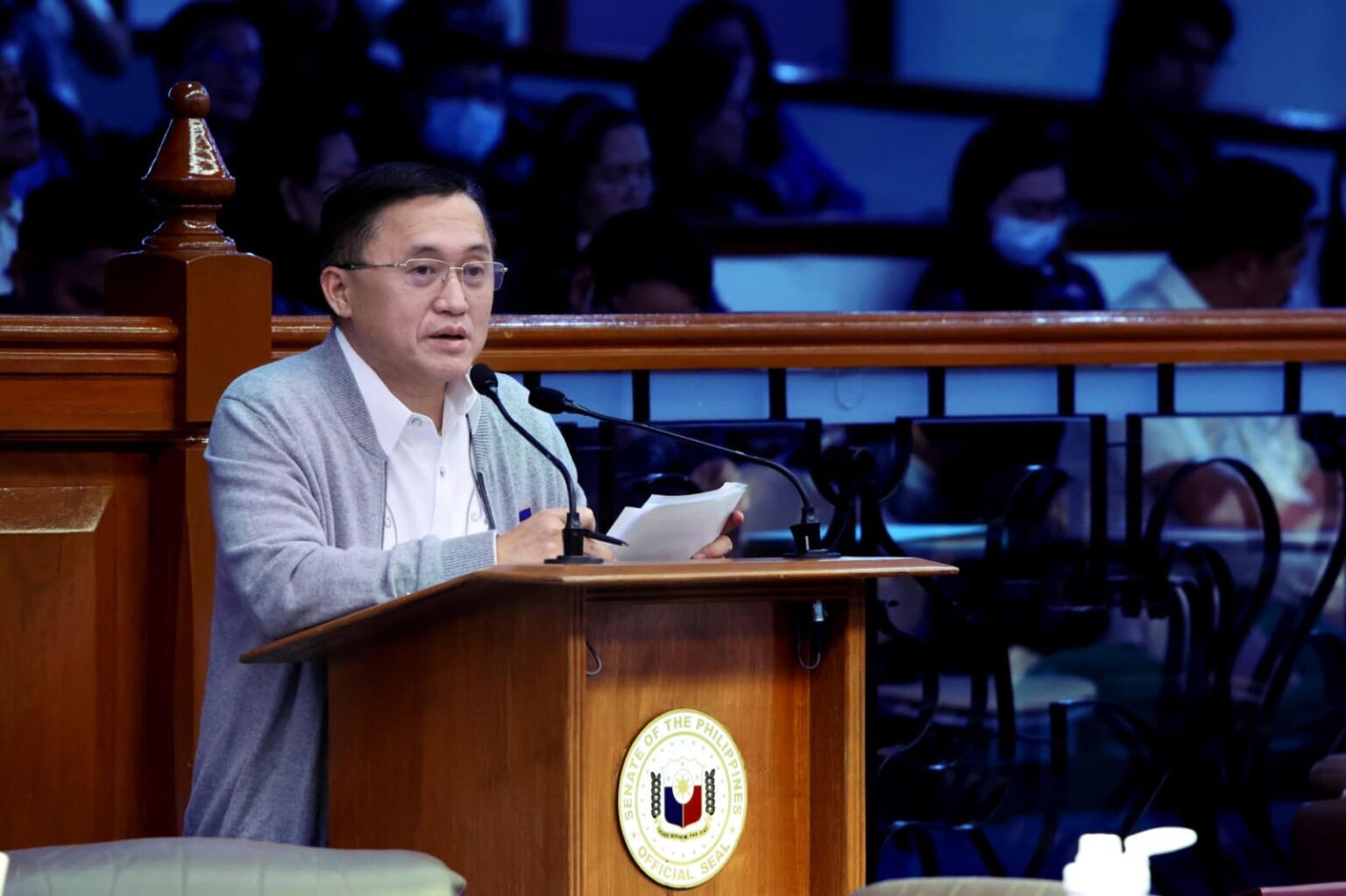SENATOR Christopher “Bong” Go, chairperson of the Senate Committee on Health and Demography and Vice Chair of the Senate Finance Committee, is advocating for the necessary funding to establish more Regional Specialty Centers and ensure its continued operations.
This call is in accordance with the enactment of Republic Act No. 11959 or the Regional Specialty Centers Act, which Go principally sponsored and is one of the authors in the Senate. The law aims to bring specialized medical care closer to the grassroots by establishing specialty centers in existing regional hospitals. The measure received a unanimous 24-0 vote in the Senate.
During the plenary debates for the Department of Health’s (DOH) budget on Wednesday, November 15, Go expressed hope that ample funding would be further granted to avoid compelling patients with serious illnesses in the provinces to travel to existing specialty hospitals in Metro Manila for treatment.
“We passed the Regional Specialty Centers Act. P10 B is already included in the committee report for the implementation of this law. This is a multi-year program at sana po ay mabigyan ng sapat na pondo para hindi na kailanganing pumunta pa sa Maynila nang mga pasyenteng may malubhang sakit sa mga probinsya,” said Go.
The senator emphasized the need to decentralize specialized medical services, bringing advanced healthcare closer to the people in the provinces in accordance with the newly enacted law. Each specialty center will host a different specialty, bringing services such as those available in Metro Manila-based hospitals like the Heart Center, Lung Center, and the National Kidney and Transplant Institute, closer to communities.
Go then urged his fellow lawmakers to ensure that the allocated funds align with the objectives of the legislation, citing the need to address the immense burden placed on individuals and their families when they are forced to seek medical care far from home, particularly for complex and specialized treatments. He then called on DOH to ensure the proper implementation of the law.
Meanwhile, this effort aligns with the continuous operations of Malasakit Centers, championed and principally authored and sponsored by Go in the Senate. Additionally, it complements the nationwide establishment of additional Super Health Centers, prioritizing primary care, consultations, and the early detection of diseases.
A brainchild of Go, the Malasakit Centers program is designed to help ensure that indigent patients have convenient access to the medical assistance programs offered by partnered agencies. Currently, there are 159 operational Malasakit centers that have assisted more than ten million Filipinos nationwide, according to DOH.
“I would like to remind the good secretary na wala dapat pipiliin at hindi selective sa pagbibigay ng tulong. Hindi dapat magamit sa pulitika ang pagbibigay ng tulong dahil ang Malasakit Center po ay ginawa para sa poor and indigent patients. Lahat ng nakapila dapat tulungan,” Go asserted.
Go also expressed his commitment to bringing public health services closer to the Filipino people by establishing Super Health Centers across the country. The said facility will offer a wide range of services, including database management, outpatient, dental, birthing, isolation, diagnostic (laboratory: x-ray and ultrasound), pharmacy, and an ambulatory surgical unit.
Additionally, the Super Health Center provides specialized services such as eye, ear, nose, and throat (EENT) service, oncology centers, physical therapy and rehabilitation centers, and telemedicine, allowing for remote diagnosis and treatment of patients.
Through the collective efforts of fellow lawmakers, local government units, and the DOH, sufficient funds have been allocated under the Health Facilities Enhancement Program of the DOH for 307 Super Health Centers in 2022 and 322 Super Health Centers in 2023. DOH, the lead implementing agency, identifies the strategic areas where Super Health Centers will be constructed.
To ensure that the health sector continues to get the necessary support, Go also discussed the importance of adequate budget provision for the Philippine Health Insurance Corporation’s Konsulta package and mental health programs, among others.








